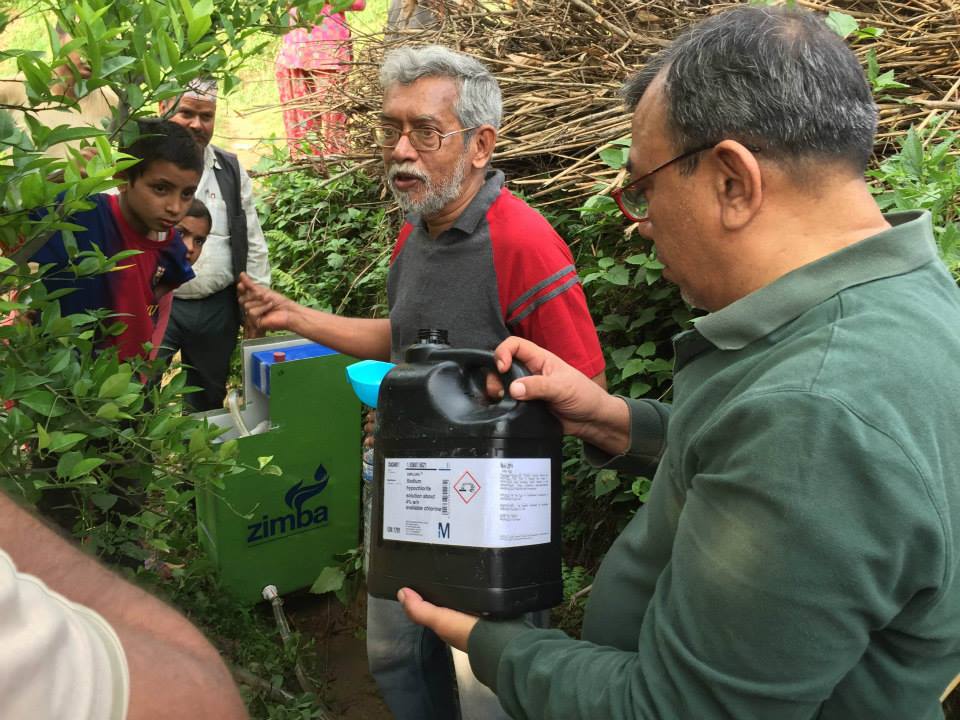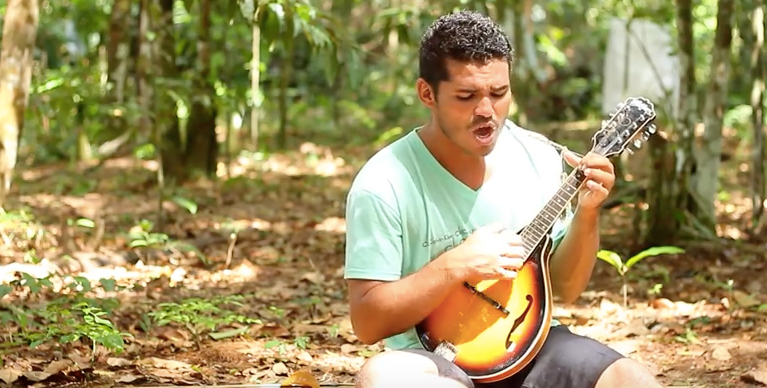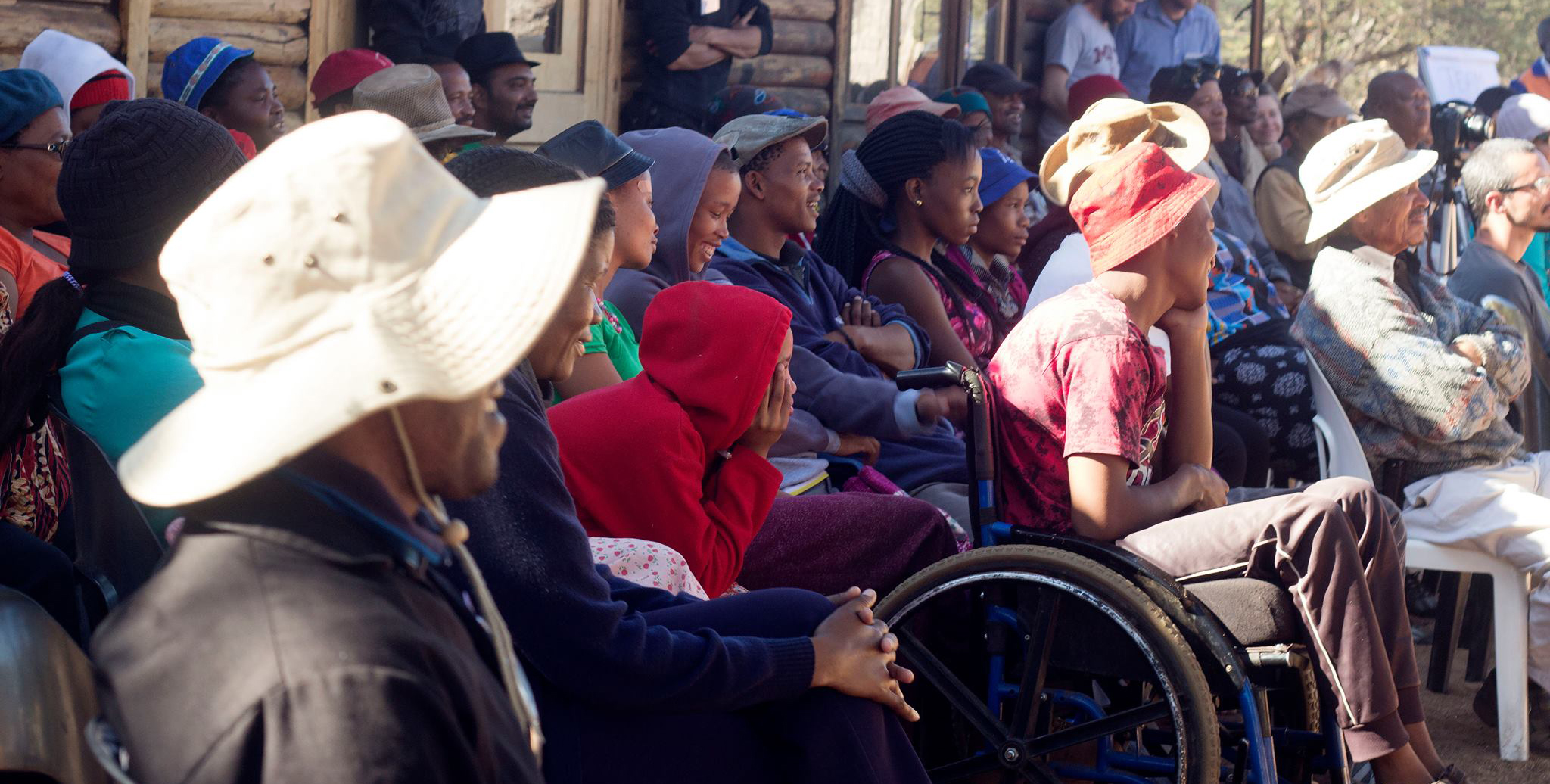Putting Innovation To Work: IDIN Network Members Support Relief Efforts in Nepal

In the aftermath of the earthquakes in Nepal, IDIN Network members around the world are putting their skills and expertise to work in building temporary and long-term housing, providing clean water, and developing new solutions to the challenges that arise during relief efforts. Learn more about each project below.
Abari — Nripal Adhikary (IDDS 2010)
IDIN Network member Nripal Adhikary and his organization Abari are building temporary housing, medical camps, and community spaces using canvas tents and readily available bamboo in some of the most remote villages in Nepal.
Abari, a local Nepalese organization, first developed a bamboo-sap displacement machine to create weather-resistant and eco-friendly bamboo shingles in Nepal with the help of an IDIN microgrant in 2014.
Although Nripal and his team are doing everything they can to provide temporary shelter, they realize that the greatest need is for long-term solutions.
On Abari’s website, they share, “Giving tarps and medical supplies are short-term (solutions), we need to plan for the long-term…it’s not the material, but the design of shelter that causes earthquake damage. There are local houses that were properly built in the hardest hit areas that have survived amazingly well."
Abari’s long-term goal is to support two villages to completely rebuild from the earthquake with earthquake-resistant, eco-friendly homes using local resources, primarily bamboo.
How you can help: Conditions change day to day after a natural disaster. The best way to assist and to provide flexibility to responders to meet emerging and changing needs is to send donations, which you can do on Abari’s IndieGoGo page.* If you have contacts that can deliver tents to Nepal, get in touch with Abari. They can use all the tents they can get! Even if you can’t donate, spread the word about their efforts by sharing this blog on Facebook, Twitter and beyond.
*For more information on why cash is advantageous in humanitarian relief situations, read this article on Slate.
Zimba — Suprio Das (IDDS 2008)
With an acute understanding of the importance of clean water in the aftermath of a disaster, IDIN Network member and D-Lab Scale-Ups Fellow Suprio Das immediately reached out to Nripal and Abari after the earthquake to see how he might be able to help.
Suprio is the founder of Zimba, an automatic, gravity-fed chlorine doser that attaches to handpumps to safely disinfect drinking water in communities without access to treated water or electricity. Nripal and the Abari team welcomed Zimba to Nepal, where Suprio traveled to remote villages to donate and install two Zimba units.
One Zimba was installed at Ghimiregaon village in Karve district, in presence of doctors from Kathmandu Medical College, and the other unit was air-lifted to Sindhupalchowk by doctors of Dhulikhel Hospital. Each Zimba unit is capable of disinfecting 100,000 liters of water before the chroline needs to be replaced.
“Doctors and other volunteer organizations have realized the cost effectiveness and logistical ease of having Zimba units in relief camps, in comparison to their current effort of transporting bottled drinking water, which is very heavy,” Suprio explains.
Now the Zimba team is looking for resources to bring more Zimba units to Nepal.
“After our return (home) we received an email from Dr. Punam Dixit of Kathmandu Medical College and Abari, requesting us to return to Nepal with more Zimba units,” Suprio said. “We are currently raising funds from friends and relatives to build more Zimba units and to cover the cost of our last trip. We will have to visit again after we manufacture a few more units to give a demo of the installation and maintenance procedure to a larger audience so that future shipments can be installed and maintained by the organizations who are showing interest.”
How you can help: Suprio is looking for help developing a printable operation and maintenance manual for the Zimba to increase uptake and improve the viability of long-term use. Contact him to learn more about how you can help!
Design Workshops — Heewon Lee & Miho Kitagawa (IDDS 2013 & IDDS 2012)
IDIN Network members Heewon Lee and Miho Kitagawa, both experienced design instructors, are co-organizing the latest Design for Development workshop at the Korea Advanced Institute of Science and Technology with Nepal in mind.
Participants in the design training will use the design cycle—identifying problems, brainstorming solutions, experimenting, testing, and disseminating innovative technologies and approaches—to generate solutions applicable in relief situations such as the aftermath of an earthquake.
Heewon is one of IDIN’s first-ever workshop fellows and has conducted 10 short design trainings to date with the Design for Development, or D4D team including G-Young Van, Roy Ombatti, Max Kruger, and Mona Mithjab. Miho is the founder of SoHub, a Japan-based community empowerment project that engages professionals, students, and local residents in the design process.
Stay tuned for more details about this special relief-focused training!
Know of other Nepal-focused efforts being led by IDIN Network members? Write us at idincommunications@mit.edu to tell us more!






